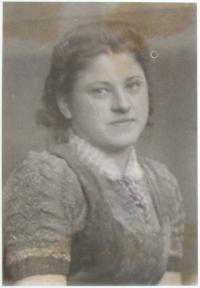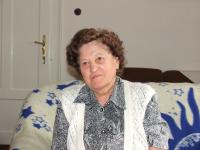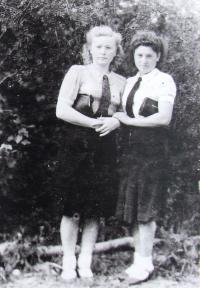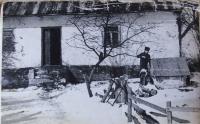“I wish for peace and for the nation to prosper, for people not stealing and killing each other. And foremost I wish for no more wars.”
Berková Olga was born on 1st July 1924 in Hradiště na Volyni, Ostrožec district. Young Olga worked at the farm and also nursing wounded soldiers. She witnessed the burning of the Czech village Malín. She speaks not only about the events of the war but also about her experience with the Russian, Ukrainian and German soldiers passing through her village. In April 1947 she moved to Czechoslovakia. She lived with her husband (a veteran from Dukla) first in Horšovský Týn, and then in Žatec. In 1981, they visited Olga’s native Hradiště na Volyni.




